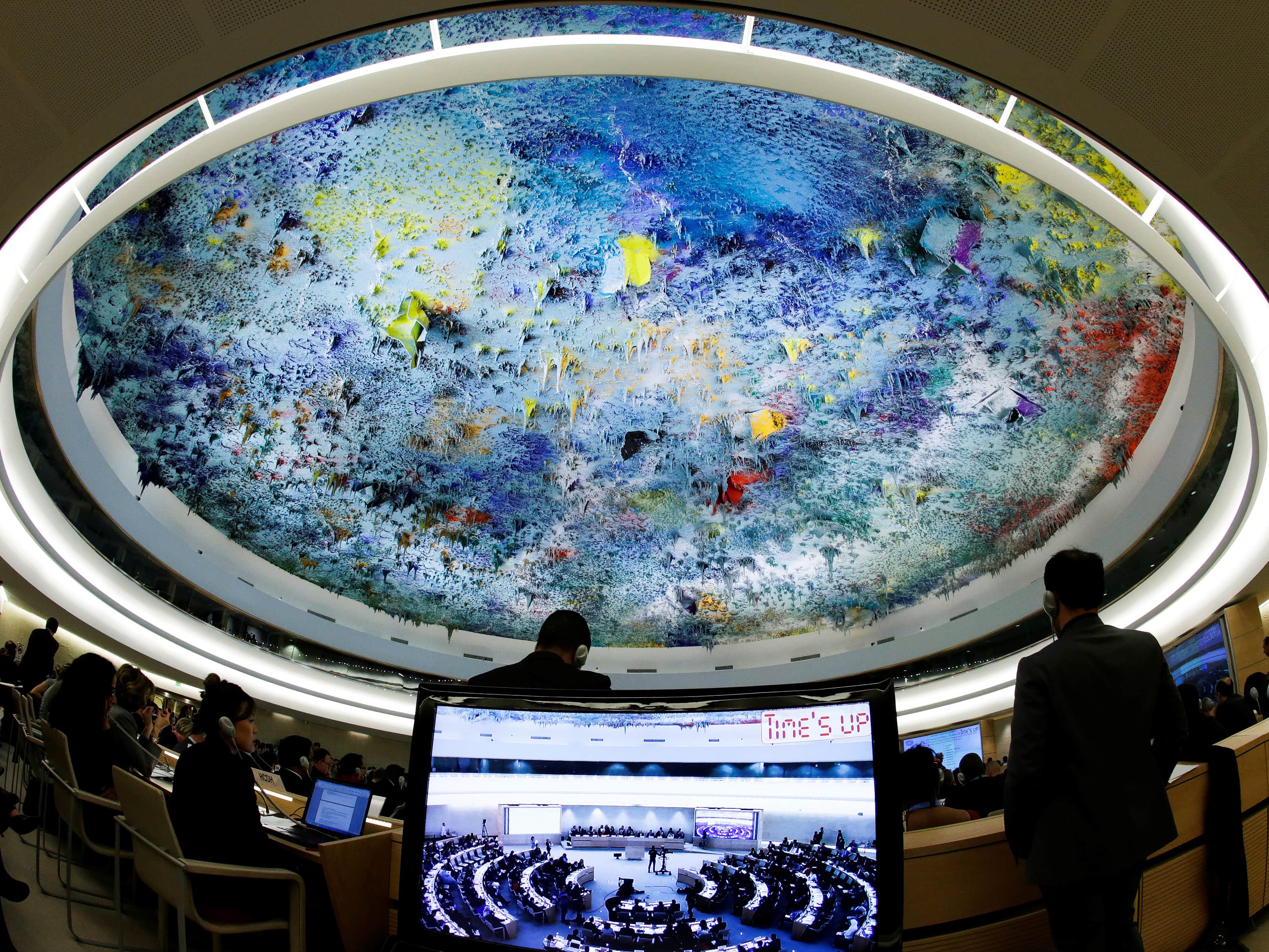States that fail to protect human rights defenders or cooperate with the UN should not be elected to the UN's top human rights body, IFEX members stress.
On 12 November 2013, the United Nations General Assembly will elect 14 new members to the Human Rights Council (UNHRC), which is responsible for “promoting universal respect for the protection of all human rights and fundamental freedoms for all, without distinction of any kind and in a fair and equal manner”.
Concerns about the clear failure of some candidates to fully comply with these criteria was expressed in an open letter signed by a diverse group of nongovernmental organisations from all parts of the world. The letter stressed that a more detailed assessment of each candidate’s record in the promotion and protection of human rights and cooperation with the UNHRC must be made on a case-by-case basis by members of the General Assembly before they cast their votes. Specifically, three areas of concern were highlighted: states’ lack of cooperation with special procedures, reprisals and intimidation and respect for effective civil society participation.
“Human rights abusers must not be elected to Human Rights Council”
“Elections to the Human Rights Council are a critical moment for the international community to hold States to account for their human rights records, and to deny membership to the most flagrant abusers,” said Phil Lynch, Director of the International Service for Human Rights. “We are particularly outraged about a disturbing pattern of attacks, intimidation and violence against those who seek to cooperate with the UN human rights mechanisms, occurring in some candidate States as part of a worldwide trend”.
Four of the countries in contention are ranked among the bottom 20 in the 2012-2013 World Press Freedom Index published by Reporters Without Borders: Saudi Arabia (163), Cuba (171), Vietnam (172) and China (173). Russia (158) is already guaranteed a seat because it is one of the candidates proposed by the Eastern Europe group to fill its two vacant seats.
In addition to the five countries named above, Algeria and South Sudan also feature on Freedom House’s list of seven objectionable candidates poised to become new members of the UNHRC. Unfortunately, the allotment of council seats, by regional groups based on population size, means that regions with fewer democratic countries such as Africa and Asia have far more seats on the council, Freedom House explains. This, coupled with the failure of all regional groups to present competitive slates, means the very rights abusers that should be the targets of the council’s scrutiny instead play a significant role in setting international standards.
Lack of cooperation with the Rights Council
Some of the candidates were criticised for having rebuffed efforts by the council’s human rights experts to visit their countries. Algeria, China, and Russia each have 10 or more unfulfilled requests for visits by UN experts, some dating as far back as 2000. Saudi Arabia and Vietnam each have seven outstanding requests, one of which is a decade old.
All candidate countries were urged to clarify their records regarding visits by Human Rights Council-appointed experts prior to the election. UN member countries should press candidate countries to agree to all outstanding visit requests, Human Rights Watch stressed.
Call for improvements ahead of the elections
Human Rights Watch provided specific recommendations for a number of the candidates, encouraging them to make several important improvements ahead of the UN elections.
Morocco, for example, was urged to eliminate laws that restrict freedom of expression, especially those that provide prison terms for defamation, providing “false information,” and “harming” the monarchy, the king and royal family, Islam, and Morocco’s “territorial integrity”.
Vietnam was pressed to adopt various measures including constitutional reform and to immediately and unconditionally release ten political prisoners, believed to be imprisoned for their exercise of basic human rights.
Finally, in a letter to South Sudan’s President Salva Kiir, international and South Sudanese human rights groups called for justice for civilians unlawfully killed by security forces, and for an end to unlawful arrest and detention across the county.
“It is wrong and naïve to believe that taking a seat on the council will force these countries into greater human rights compliance,” Reporters Without Borders cautioned. “On the contrary, it is feared that they will join forces with other delegations serving until 2015, such as the United Arab Emirates, Pakistan and Kazakhstan, to support projects that jeopardise freedom of information. Any measures in support of respect for traditional values, blasphemy, or Internet surveillance and filtering must be opposed. The Human Rights Council must remain a body that defends universal human rights values.”



